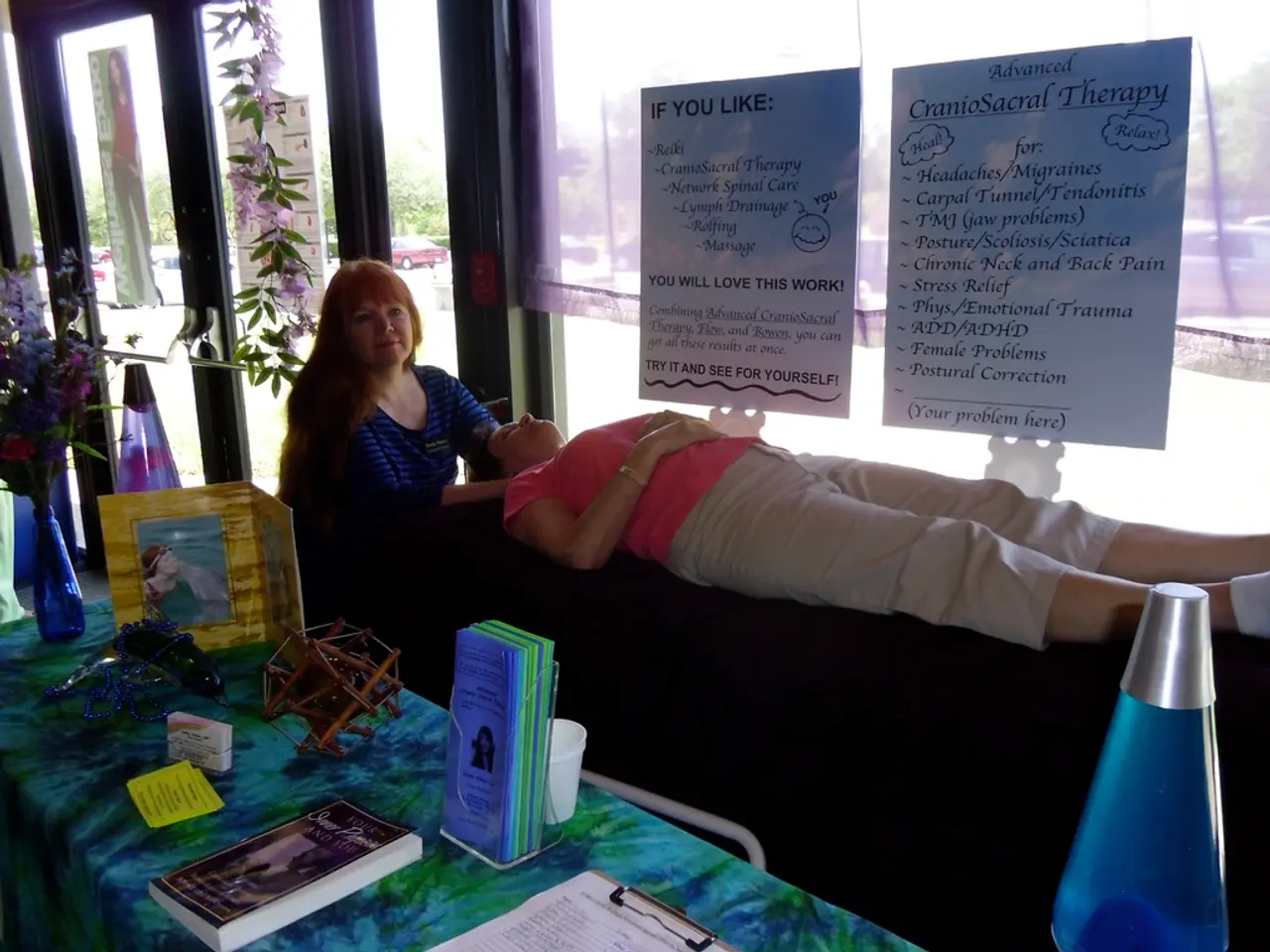Examining Hypomania: Characteristics, Underpinnings, and Management Methods
Hypomania, a psychological state characterised by elevated mood, increased energy levels, decreased need for sleep, increased talkativeness, and racing thoughts, is a key aspect of bipolar disorder. This condition, when left untreated, can have serious and far-reaching consequences for both an individual's mental health and their relationships.
The long-term effects of untreated hypomania can be profound. It often precedes or coexists with depressive episodes, which can be prolonged and severely impair daily functioning. Without intervention, symptoms tend to worsen over time, potentially leading to more frequent and severe mood episodes, including more intense hypomanic or even manic episodes, and deeper depressive states.
Untreated bipolar disorder is associated with higher rates of other psychiatric and medical comorbidities, such as anxiety disorders, substance abuse, cardiovascular disease, diabetes, and respiratory illnesses. Moreover, many individuals with bipolar disorders struggle with medication adherence due to side effects, which can worsen prognosis and increase relapse rates.
The risk of suicide is also elevated in individuals with untreated bipolar disorder, due to mood instability and depressive episodes. This disorder is linked to disability and premature death, partly due to the health complications and suicide risk associated with untreated mood symptoms.
In terms of relationships and social functioning, untreated hypomania can lead to behaviours such as impulsivity, irritability, and poor judgment, straining family and social relationships. The cycles of mood instability often create misunderstandings, conflicts, and feelings of instability among loved ones. Individuals may face difficulties at work or school due to the fluctuating energy and concentration levels linked to mood episodes, leading to poor performance and financial troubles. Progressive depressive symptoms following hypomanic episodes may result in social withdrawal and isolation, which further deteriorates interpersonal bonds and support systems.
Early recognition and treatment of hypomania and bipolar disorder can improve prognosis by reducing episode severity, frequency, and the risk of complications. Treatment helps maintain social and occupational functioning and can reduce suicide risk. Coping strategies for managing hypomania and the subsequent bipolar crash include medication, therapy, creating a supportive environment, practicing self-care, and recognising early warning signs.
Recognising early warning signs of hypomania or a bipolar crash can empower individuals to take proactive measures before symptoms escalate. Stressful life events, disruptions in sleep patterns, irregular medication adherence, or substance abuse can act as triggers for a bipolar crash. Cognitive-behavioural therapy (CBT) or dialectical behaviour therapy (DBT) can assist individuals in developing coping skills, managing stress, and enhancing resilience.
Self-care practices include prioritising healthy sleep patterns, engaging in regular physical exercise, practising stress-reduction techniques, and maintaining a balanced diet. Recognising early warning signs may involve keeping a mood journal or using mood tracking apps to identify patterns and triggers. Establishing a structured daily routine and setting realistic goals can help individuals manage their energy levels and minimise potential triggers.
Seeking professional help is crucial for individuals experiencing a bipolar crash. Mental health professionals can provide a comprehensive evaluation, create a personalised treatment plan, and offer support throughout the recovery process. It is important for individuals to work closely with their healthcare team to develop and fine-tune their coping strategies based on their specific needs and experiences.
In summary, untreated hypomania can lead to worsening bipolar disorder, significant medical and psychiatric comorbidities, increased suicide risk, and serious social and occupational difficulties. Early diagnosis and consistent treatment are crucial to mitigating these long-term adverse effects.
- Recognising the early warning signs of hypomania or a bipolar crash is essential for an individual to take proactive measures, as stressful life events, sleep pattern disruptions, irregular medication adherence, or substance abuse can trigger a bipolar crash.
- Self-care practices, such as prioritising healthy sleep patterns, engaging in regular physical exercise, practising stress-reduction techniques, and maintaining a balanced diet, play a crucial role in managing hypomania and the subsequent bipolar crash.
- Keeping a mood journal or using mood tracking apps can help an individual identify patterns and triggers, empowering them to take proactive measures before symptoms escalate.
- Early diagnosis and consistent treatment of hypomania and bipolar disorder are critical in improving prognosis, reducing episode severity, frequency, and the risk of complications associated with this mental health condition.
- Treatment for bipolar disorder often involves medication, therapy, creating a supportive environment, practicing self-care, and recognising early warning signs, along with working closely with a mental health professional to develop a personalised treatment plan.




